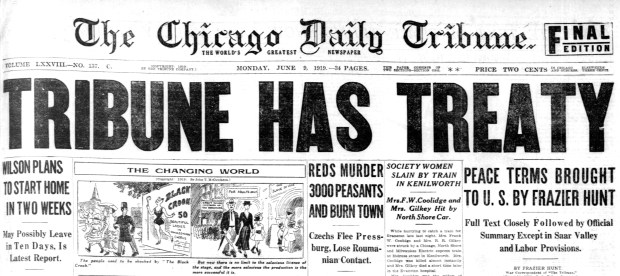Amid the Trump administration’s ideological makeover of dozens federal agencies, the National Endowment for the Arts is re-routing millions of dollars from its Challenge America initiative, which was designed to assist nonprofit arts organizations with outreach to underserved audience.
That money has been shifted to a general Grants for Arts Projects budget, and will favor art and artists celebrating the upcoming U.S. Semiquincentennial, according to an NEA announcement Thursday on its www.arts.gov website.
“Funding priority will be given for projects (that) celebrate and honor the 250th anniversary of the signing of the Declaration of Independence,” the NEA announcement reads. This and other revisions are “in response to recent directives.”
The administration’s changes mark a major shift in the funding of the arts in America, and the administration’s latest effort to remove diversity, equity and inclusion initiatives across the U.S. government. The NEA’s website no longer contains language referring to “projects that extend the reach of the arts to underserved groups/communities.”
The directives given to the NEA effectively end direct funding of underserved audiences nationwide, after 60 years of the agency and nonprofit arts groups producing and presenting theater, film, visual art and other work. As result, the NEA is now in the business of funding patriotism, according to several Chicago arts leaders.
“The kind of funding our theater has received in the past is basically gone,” says Jennifer Green, artistic director of the Evanston-based Piven Theatre Workshop.
In years past, Green says, “we’ve been awarded NEA grants for work we do involving adults with developmental disabilities.” Given President Donald Trump’s frequent public statements against DEI and what he views as “immoral and illegal” discriminatory hiring practices in federal agencies, Green wonders: “If we’ve been funded in the past to create opportunities for underrepresented folks in theater, is that no longer a priority? Or even eligible for an NEA grant?”
This week’s official erasure of words like “underserved” in the NEA’s website does not sit well with longtime Chicago arts leader Henry Godinez.
“It’s stupid and narrow and ignorant,” says Godinez, Northwestern University professor and Department of Theatre chair, as well as Goodman Theatre artistic associate and a member of the Illinois Arts Council. He’s also the artistic director of the biennial Latino Theatre Festival at the Goodman.
Godinez says the NEA’s emphasis on underserved audiences has been as much about the geographical diversity of federal arts expenditure as any other kind. “If you read the mandate of the NEA, it says “underserved.” Not Black. Not Latino. No DEI. Nothing about race or culture. It’s largely about reaching communities outside the major urban centers, in both red states and blue.”
Established in 1965, the NEA survives for now, but it has been a political target before. In his first term, Trump became the first U.S. president to propose the elimination of federal arts funding in America; bipartisan congressional support for the National Endowment for the Arts saved the agency at a time. But over the decades, lawmakers on both sides of the aisle have targeted it for supporting what they have deemed offensive or politically confrontational projects in the arts.
The NEA receives about $200 million in federal funding annually, money it distributes to cultural groups and arts nonprofits across the country. Agency chair Maria Rosario Jackson resigned from her post on Jan. 20, with previous Trump appointee Mary Anne Carter now serving as senior advisor.
Chicago-area arts leaders are waiting to find out how the NEA will implement this week’s changes, in the form of what and who gets the grant money. Aside from a sanctioned wave of Declaration of Independence-themed projects and, perhaps, one too many revivals of the mainstream musical hits “1776” and “Hamilton,” what’s in store?
For many nonprofits in Chicago, the programming may not change much at all, says Rebecca Fons of the Gene Siskel Film Center, which operates under the auspices of the School of the Art Institute.
There are, naturally, some questions about Film Center programming mainstays that, in theory, could ring the wrong bell with the current administration, the annual Black Harvest Film Festival for one.
On the other hand, says Fons, “by definition, the Film Center receives funding that supports our year-round programming, including Black Harvest. Black Harvest celebrates Black American filmmaking voices. I would hope and anticipate that our program would continue to fit within these new guidelines. Our plans have not changed and will not change, and if I’m reading the new guidelines correctly, there should be no issue.”
Lost in many political arguments regarding the NEA is the amount many other nations spend on arts support. In 2023, the NEA budget was $207 million. Germany’s equivalent was roughly $2 billion, in 2023 exchange rates. The United Kingdom’s culture budget, encompassing a wider range of activity, was $9.93 billion. France’s spending, though diminished like many other nations over the last year of chaotic geopolitical churn, was $11 billion in 2023.
It’s a slightly different scale for the average small or medium-sized nonprofit arts organization, says Green of the Piven Theatre Workshop, which operates on a $400,000 annual budget and, she says, fights for every dollar.
The NEA grants have been important to that budget whenever they come through, she says.
“A lot of us not-for-profits rely on grants, donations and philanthropy to keep our doors open,” Green says. “For all of us in the Chicago area who made it through the pandemic, any new obstacle is keenly felt. It’s like we’re being kicked around in every possible direction. It’s tough, because art is usually a light in the dark times.”
The NEA’s new priorities, she says, were not a surprise. “The arts and the NEA aren’t a priority for this administration. But it’s exhausting.”
Michael Phillips is a Tribune critic.




